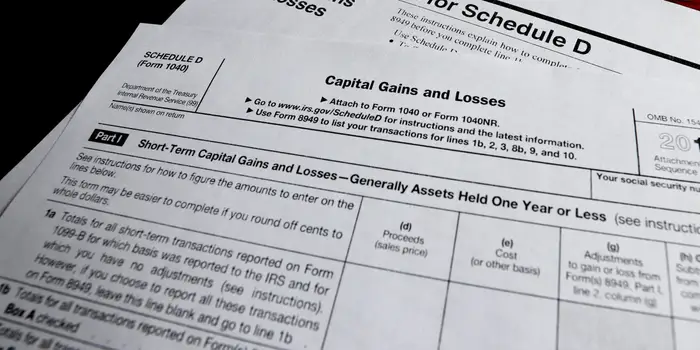An Ultimate Guide About Capital Gains
Sep 11, 2022 By Triston Martin
Introduction
Gain on selling a capital asset, such as a stock, bond, or piece of real estate, is referred to as a capital gain. When the value of an asset is sold for more than it was initially bought for, a capital gain is realized. It is the sum of an asset's selling price and acquisition cost. When the purchase price is greater than the sale price, a capital loss results. Gains on the sale of capital assets are known as capital gains. Gain is calculated as the sale price minus the purchase price. Capital gains are taxable just like any other source of income.
It is considered a capital loss if the selling price is lower than the buying price. If Bob invests $100 in Stock X and then sells all of his shares for $15, he has made a $50 capital gain. Investment profits can be either short-term or long-term. A capital gain is considered short-term if the asset was held for a year or less. A long-term capital gain occurs when an asset is held for more than a year. Long-term and short-term capital gains are taxed at different rates. If you take the total capital gains and subtract the total capital losses, you get the net capital gain.
Example of Capital Gains
Consider the following scenario as an example of how capital gains are calculated and taxed. Let's pretend Jeff spent $3500 on 100 shares of Amazon (AMZN) stock on January 30, 2016. As a result, on January 30, 2018, he plans to sell all of the stock for $833. Assuming no other costs were deducted from the sale price, Jeff made a profit of $48,300 ($833 multiplied by 100 minus $350 multiplied by 100). The 15% tax due on Jeff's business deal comes to $7,245 ($48,300 multiplied by 0.15 equals $7,245).
Classifications of Capital Gain

Gain on a capital investment may be realized or remain dormant. When an asset or investment is sold for a profit at its ultimate sale, that profit is known as the realized gain. On the other hand, an unrealized gain occurs when the market value of an investment or asset has increased above its original cost, but the investment or asset has not yet been sold. Keep in mind that only profits that are cashed out or "realized" are taxed, whereas "paper" or "unrealized" gains are just subject to accounting reporting but do not result in a taxable event.
Realized capital gains are further categorized as either short-term or long-term. If an investment or asset is held for less than a year, the resulting gain is considered short-term (capital). Gains on an asset or investment kept for more than a year are considered long-term (capital) gains.
When is Capital Gains Taxed?
Your capital gain (or loss) for tax purposes is considered to have been "realized" when you sell a capital asset. Therefore, as long as you keep holding on to your capital assets, you won't have to pay tax on any value appreciation they've accrued. For instance, a loan secured by an asset's value does not trigger a realization event or a capital gains tax. Many investors in real estate prefer to refinance rather than sell their properties.
Special Capital Gains Tax Rules

Please be aware of the following qualifications. If your income from capital gains is higher than the limit for the lower capital gains rate of 15%, the entire amount of your capital gains will be taxed at the higher rate of 20%. Furthermore, you can't write off capital losses if they fall into a specific category. You can't claim a tax deduction for selling an asset at a loss, such as a car or home.
On the other hand, the first $250,000 of capital gains from the sale of a primary residence are tax-free. For a married pair, the number doubles to $1 million. Capital gains for individuals with incomes over these levels are subject to a 20% tax rate. Investors with a high net worth may be subject to the 20% tax on capital gains plus the extra net investment income tax.
Conclusion:
A capital gain is a profit from selling an appreciated asset. Any asset can generate capital gains, whether bought as an investment or for personal use. Any profit, whether held for a year or less or several years, must be reported as income. Increases or decreases in the value of an investment that is not realized do not constitute taxable capital gains. When an asset's value drops below its original purchase price, it results in a capital loss.

Jan 02, 2023 Triston Martin

Feb 03, 2024 Susan Kelly

Feb 06, 2024 Susan Kelly

Aug 30, 2022 Triston Martin

Jan 27, 2024 Triston Martin

Feb 20, 2024 Susan Kelly